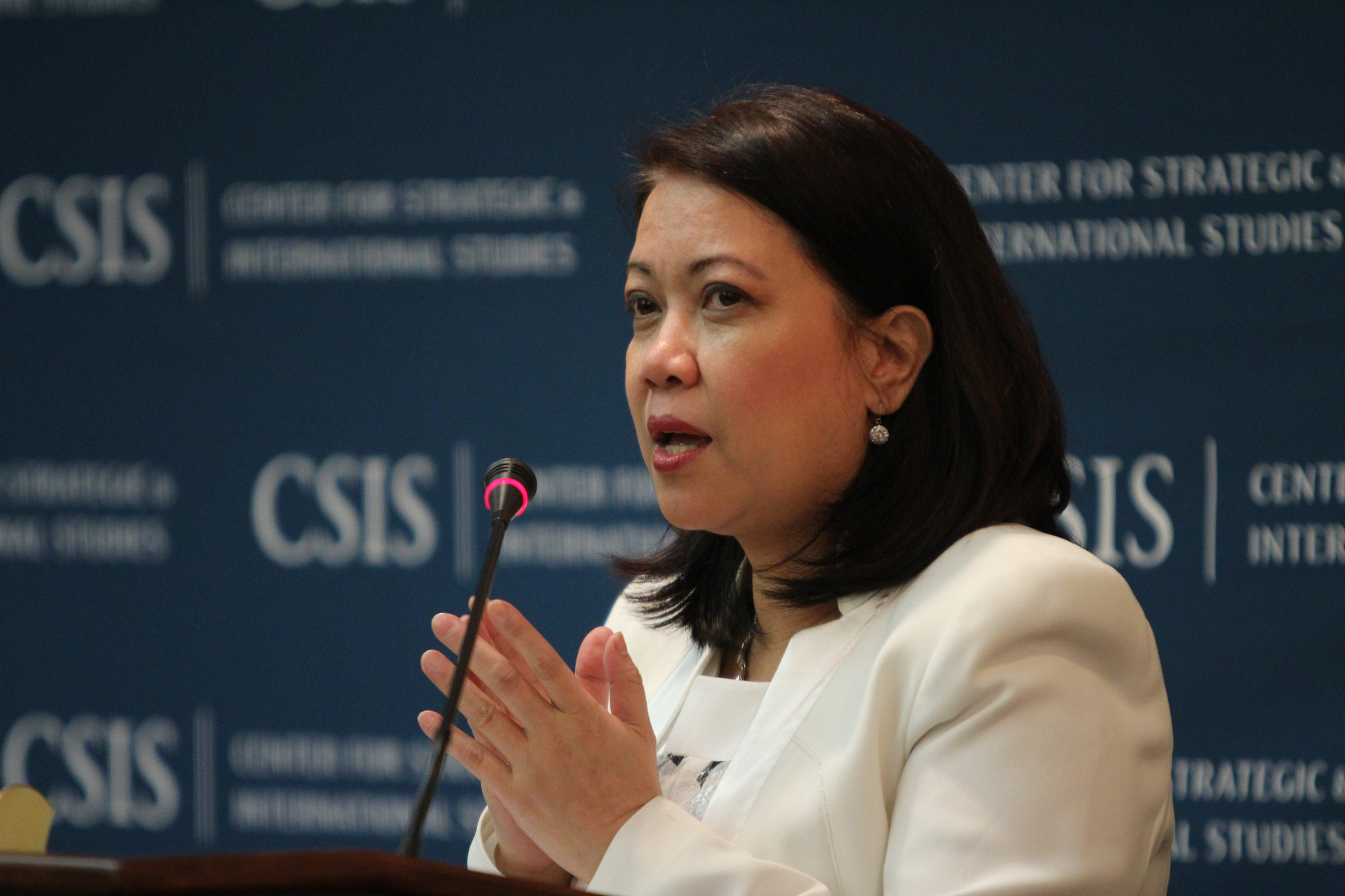Headline
Maguindanao massacre case hearings now held thrice a week—CJ Sereno

Chief Justice Maria Lourdes P. Aranal Sereno. (Photo by Center for Strategic & International Studies/Flickr)
MANILA—The Quezon City Regional Trial Court has been conducting hearings on the Maguindanao massacre case thrice a week in a bid to serve justice to the victims of the crime and their families, according to Supreme Court (SC) Chief Justice Maria Lourdes Sereno.
”We have had positive impacts, starting with the special expedited rules for the Maguindanao massacre cases. For a criminal case of such magnitude, our judge has remarkably been performing fast. She has been conducting hearings continuously, thrice-weekly. The prosecution has rested and the defense is presenting its evidence,” she said in her speech during the 68th inaugural meeting of the Management Association of the Philippines (MAP) held at a hotel in Makati City.
Sereno stressed as of Jan. 24, Quezon City RTC Branch 221 Judge Jocelyn Solis-Reyes has already heard a total of 233 witnesses: 131prosecution witnesses, 58 private complainants, and 44 defense witnesses.
She added the court has also resolved all the 12 sets of formal offer of evidence (FOE), and all bail applications of the 69 accused, except the bail application at of accused Andal “Unsay” Ampatuan, Jr., which was deemed submitted for resolution on January 3, 2017.
The Chief Justice also said the case record has reached 119 volumes and the transcript of stenographic notes 55 volumes.
”No matter how diligent our judge has been, what we badly need is the full and consistent cooperation of the defense and prosecution to conclude the trial soonest,” she noted.
In related development, Sereno said that there is a need to craft special rules of procedure that will streamline the rules on the filing and the prosecution of class suits and similarly massive suits.
”Our aim is to give greater access to justice to those who seek redress in mass injury cases, whether through civil or criminal proceedings. The idea is to delegate factual issues to commissioners who are experts in their fields. Most of these cases revolve around the specific damage to each victim: how it was incurred, and at what cost. By referring the reception of evidence to commissioners duly empowered by the court, trial time will be significantly reduced, since the judge will only have to rule on legal and procedural matters,” she explained.





















